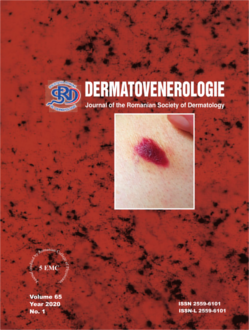Psoriasis is now considered a chronic systemic
inflammatory disease, in which T lymphocytes play a
predominant role in pathogenesis.
Activation of the cells of the adaptive immune system,
and to some extent, their functionality is conditioned by
innate immunity.
There are numerous innate immunity structures that
control or modulate the normal or pathogenic mechanisms
of adaptive immunity. Of these, the most important are:
TLR, secretion of cytokines (IL-1, TNF), antimicrobial
peptides that intervene at various levels of adaptive
immunity. Disorders of innate immunity have
repercussions on adaptive immunity in many chronic
inflammatory conditions, including psoriasis. The
specificity of the pathological mechanisms and the clinical
manifestations is given by the involvement of keratinocytes,
which can become both initiators and targets of the
pathological mechanisms of psoriasis.
Thus, psoriasis can be considered as a disease with
paricipation of both innate and adaptive immunity.
We present the most important mechanisms of innate
immunity, with a role in the pathogenesis of psoriasis and
their involvement in adaptive immunity.
General reviews
Innate immunity in psoriasis


